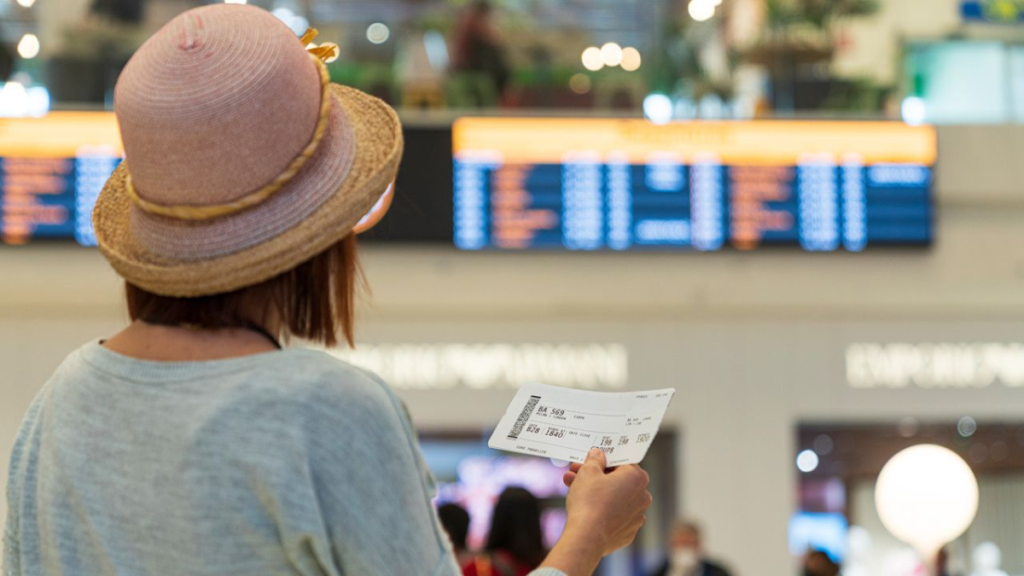Skiplagging, or hidden-city ticketing, is a controversial practice where travelers intentionally skip the final leg of a flight to reach a covert destination, resulting in significant cost savings. This practice has gained prominence in the last decade, with websites like Skiplagged.com increasing awareness of the practice. While not a criminal offense, skiplagging violates airline contracts of carriage, and airlines may impose penalties such as loss of frequent flyer miles or bans from future flights.
Airlines strongly oppose skiplagging due to costs, operational issues, disruptions in scheduling, and additional stress on staff. Major airlines, including American, Delta, and United, express disapproval, and the US Department of Transportation does not specifically address skiplagging. A delicate balancing act exists for airlines to discourage skiplagging without inadvertently promoting it.
Consequences for skiplaggers include potential penalties such as revoking frequent flyer miles, requiring payment of fare differences, or imposing temporary bans. Despite potential financial benefits, travelers must weigh the financial benefits against potential repercussions before deciding to embrace or avoid this unconventional strategy.
A Skiplagger’s Tale:
Amanda, a marketing professional from Texas and a frequent flyer, shares her skiplagging experiences. Despite the potential penalties from airlines, she has employed this tactic around ten times in the last couple of years, estimating savings ranging from $3,000 to $4,000. Amanda began skiplagging in response to rising flight prices during the pandemic, particularly for international flights, and plans to continue doing so.
The Legality and Risks:
While skiplagging is not a criminal offense, it violates airline contracts of carriage. Scott Keyes, founder of travel site Going, notes that while travelers won’t face legal consequences, airlines may impose penalties such as loss of frequent flyer miles or bans from future flights. Amanda, like many skiplaggers, hopes to avoid detection and continues the practice due to its significant cost-saving benefits.
Historical Perspective:
Skiplagging is not a new phenomenon; travel agents have used similar tactics for years. However, the term gained prominence in the last decade, with websites like Skiplagged.com increasing awareness of the practice. Former airline pilot Kathleen Bangs likens it to the modern-day equivalent of ghosting a flight, where passengers book a multi-leg journey but skip the final segment to reach their desired destination more economically.
How Skiplagging Works:
The practice is effective on flights with connecting cities, as the fare for these flights is often lower than nonstop options. For example, booking a flight from Minneapolis to Jacksonville with a connection in Miami might cost less than a direct flight from Minneapolis to Miami. Skiplaggers take advantage of this price discrepancy, booking the cheaper multi-leg option and exiting at the connecting city, saving money in the process.
Why Airlines Disapprove:
Airlines strongly oppose skiplagging for several reasons. Phil Dengler, co-founder of The Vacationer, explains that it costs airlines money because connecting flights have a lower price ceiling than nonstop ones. Furthermore, intentionally skipping the final leg creates operational issues, such as empty seats that could have been sold at a higher price. Airlines also contend that skiplagging disrupts their scheduling and puts additional stress on staff.
Airline Responses:
Major airlines, including American, Delta, and United, express disapproval of skiplagging, emphasizing that it violates their conditions of carriage. American Airlines, in particular, mentions potential operational issues and the negative impact on other passengers. While the US Department of Transportation acknowledges passenger rights, it does not specifically address skiplagging.
Balancing Act for Airlines:
A delicate balancing act exists for airlines seeking to crack down on skiplagging. Scott Keyes suggests that highlighting the issue too much could backfire, as increased awareness might lead more travelers to adopt this cost-saving strategy. Airlines face challenges in discouraging skiplagging without inadvertently promoting it.
Consequences for Skiplaggers:
Despite potential cost savings, travel experts caution against skiplagging due to its associated hassles and risks. Dengler warns that airlines may penalize skiplaggers by revoking frequent flyer miles, requiring payment of fare differences, or imposing temporary bans. The potential consequences may outweigh the financial benefits, making the strategy less appealing for some travelers.
Conclusion:
While skiplagging remains a controversial tactic with potential risks, some travelers, like Amanda, continue to employ it as a means of making international travel more affordable. The debate over the ethics and consequences of skiplagging underscores the complexities of the airline industry and the lengths to which passengers will go to navigate its pricing intricacies. As flight prices continue to fluctuate, travelers must weigh the financial benefits against the potential repercussions before deciding whether to embrace or avoid this unconventional strategy.







